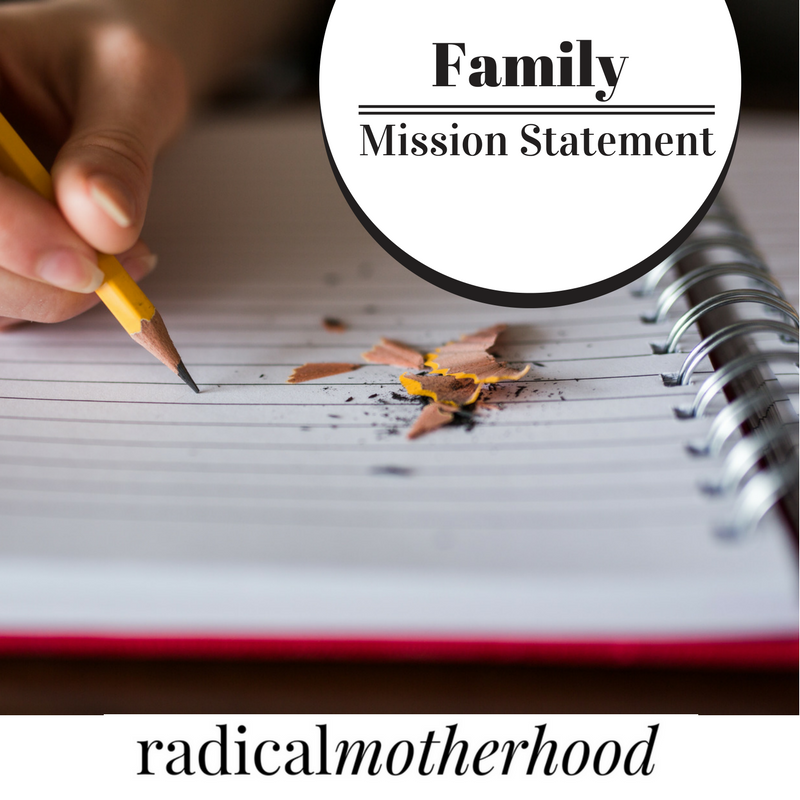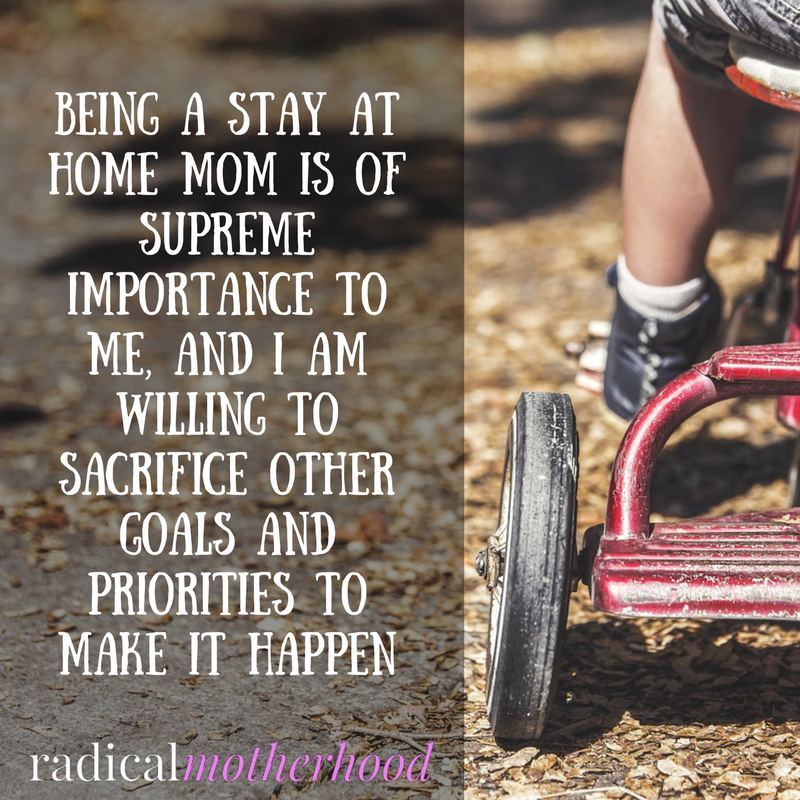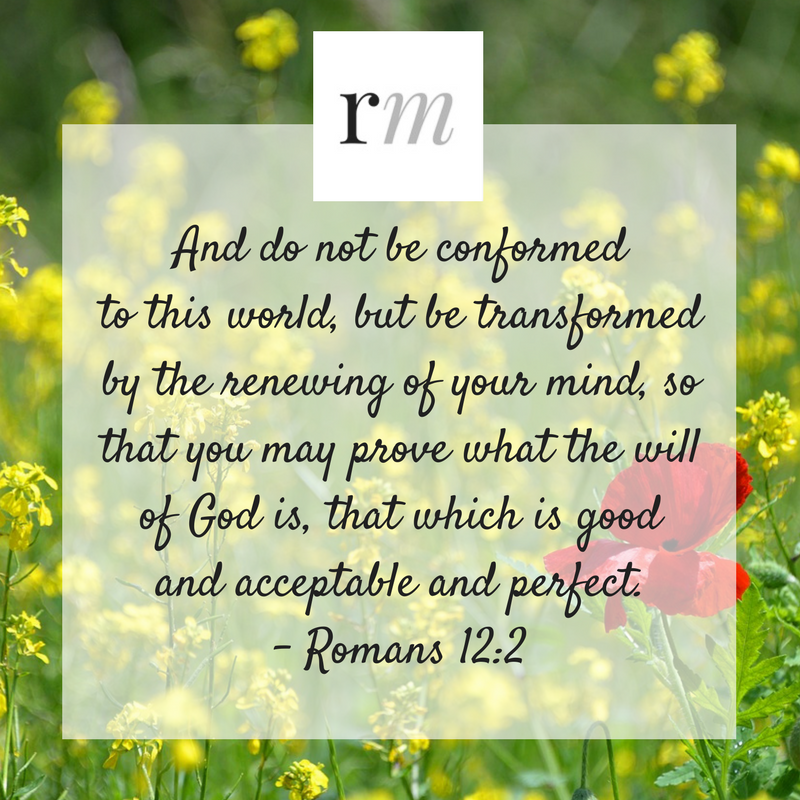Creating – and then living – your family mission statement is one of the most important things you can do as a parent to ensure your children’s happiness and success. And by success, I don’t mean getting good jobs and making lots of money (although that may be part of it for some children). I mean success as in fulfilling their unique purpose on this planet. A family mission statement will draw you closer together, give you a sense of shared identity, and clarify your joint and individual purpose. This post will help you understand how a mission statement will help you be a better parent, and you’ll learn the basics of developing your own personalized family mission statement.
Don’t miss out on our free Family Mission Statement workbook, which you can download here: Family mission statement.
How We Discovered the Family Mission Statement
My husband and I know several families who have produced simply amazing children. These young adults have a strong faith, they love and respect their parents (as well as all adults), they’re passionate about helping people, they’re smart, confident, ambitious…basically everything you could ever hope for as a parent. One of our favorite pastimes is trying to figure out HOW THEY DID IT. How did these parents raise, not just one, but 2, 3, or 10 children who are outstanding in so many ways? Is it purely genetic? Partly genetic? Good luck? Good discipline? A specific parenting style? Is it the school? Homeschool? A good group of peers and friends? Their church? Prayer? In the past, we’ve been utterly confused and disheartened, because we could never find the common thread. Comparing parents to parents, children to children…what was the pattern? We could never figure out how seemingly similar families with similar backgrounds could end up with such different results; some had done an excellent job preparing their kids for the real world, while others seemed to have failed.
What we were desperate to know is this: What do we need to be doing now to ensure that our kids transition to adulthood without rebelling, losing their faith, getting addicted to drugs, forming unhealthy relationships, etc., etc.? Well, I’ve been reading a ton of books on raising kids, especially on raising Catholic kids, and I think I’ve actually stumbled onto the answer. It’s something I’m going to refer to as FAMILY IDENTITY.
Family Identity
Family Identity has two basic components:
1. Having a clear sense of your family’s purpose, or mission, and getting your kids engaged in that mission.
2. Building strong relationships between parents, between each parent and each child, and among children.
As parents, our job is to establish a family mission (#1) and create a loving, safe, happy environment that is better and more attractive to our children than anything the outside world has to offer (#2). Once I discovered these two secrets, it was suddenly easy for me to see how families I know, including my own, have experienced such different levels of success and failure. The families I know with outstanding children have this aura about them that other families just don’t have. They EXUDE love for each other. You can tell, just by being with them, that they know each other intimately and truly enjoy each other’s company. It’s almost like they share a secret language, born from years of shared experiences and conversations. They are nicer to each other than most families. They know more about each other than most families. They have inside jokes. They have special traditions and rituals. Siblings talk to each other as equals; as friends. They know WHO THEY ARE, which some people spend a lifetime trying (and failing) to figure out. Once I identified these two components of family identity, I felt relieved. For a moment. Until I started thinking about HOW I was going to make this happen in my own family, who struggle to even spend a 30-minute car ride together or go to Wal-Mart without causing a scene. It took a while to break down these huge ideas of family mission and family relationships into smaller pieces that I can actually do. I’m just getting started, but I have a lot of great ideas to help inspire you – and me – on this journey. This post will give you some small steps that can take you a long way toward the kind of family you’ve always dreamed of having. Join me right now and we’ll make 2018 the year we start building up our families together!
Step one: Create a Family Mission Statement
Your first step is to create a family mission statement. This is going to be unique to your family, and it might evolve as your children grow, or as you grow in your faith. Focus on a strength that your family already has, or one you want to develop. For our family, it’s going to be one we want to develop. My husband and I used the Radical Motherhood Family Mission Statement workbook to write our statement, which really helped solidify our ideas and turn our random thoughts into a cohesive mission statement. Don’t feel like you have to use the whole thing; we just picked out three or four pages that “spoke” to us, and that was plenty. Try to get your kids involved to the extent that it makes sense, given their ages and maturity level. We actually did ours without any input from the kids, because we felt very strongly about the direction we wanted to go, and we didn’t want to ask for their input when we probably wouldn’t be able to use it. We also struggle with having “deep” conversations with more than one of the kids at a time…it usually descends into teasing and potty talk, which leads to yelling and lectures and the exact opposite of what you want to get from a deep conversation with your kids. So, using the Family Mission Statement workbook, we developed three separate components of our mission statement: our word for 2018, our mission statement, and our Bible verse.
Our Word
Our word for 2018 is “Gift.” We want each member of our family to focus on being a gift to each other, and to others. That means giving the gift of time to a younger sibling who wants to play. Giving the gift of being first or having the biggest piece to someone else rather than fighting for it yourself. Giving the gift of kind words when someone is sad, or a listening ear when someone wants to talk about their day. Giving the gift of hard work around the house to give each other a clean, organized, peaceful space to live in. Being a gift means always thinking about what we can do for others, rather than thinking about what others should be doing for us. John and I are already finding all kinds of situations where we can gently remind the kids about being a gift (“Are you being a gift in this situation? How could you be a gift in this situation?”). We sneak it into our morning, mealtime, and bedtime prayers with the kids too. And it has helped motivate me to be my best self when I’m staring at a huge pile of laundry, or when one of the kids comes to me at 2 a.m. for a glass of water. Do I want to whine and work grudgingly for my family, or do I want to give them the gift of myself, lovingly and joyfully?
Our Mission
Our family mission is: “To be a gift to each other, and to others, through loving service and joyful sacrifice.” Simple, right? With several of our kids being pretty young, we wanted something short and sweet, without a lot of big words. We added “loving” and “joyful” as adjectives to help the kids see that it’s not enough to perform grudging service and mopey sacrifice. Attitude really is everything, and boy, do we struggle with the attitude.
Our Verse
I wanted to find a Bible verse that illustrated our family mission, and I want all of us to memorize it over the course of the year. Here it is:
“We know love by this, that He laid down His life for us; and we ought to lay down our lives for our brothers and sisters. But whoever has the world’s goods, and sees his brother in need and closes his heart against him, how does the love of God abide in him? Little children, let us not love with word or with tongue, but in deed and truth.” 1 John 3:16-18
If you want to add a Bible verse to your mission statement but don’t know where to find the topic or idea you have in mind, just do a Google search for “Bible verse about [insert your topic here]”. You can also search for a snippet of a Bible verse, which is how I found mine. I knew there were verses with “lay down his life” in them, and so I searched for that and came up with this verse, which is even more appropriate than the one I had in mind.
Using Your Mission Statement
Once you have a mission statement, you really have to be relentless in talking about it, or it’ll get forgotten. We try to bring it up every time we pray together, and I want to post it on our wall in the living room. Some other ideas:
- Praise your child for acting in a way that exemplifies your mission
- Gently remind your child of your mission when correcting him
- Make a conscious effort to exemplify your mission
- Tell stories (true and fictional) that illustrate your mission
- Practice memorizing your verse and mission, and offer a reward for successful memorization
- Encourage older kids to write their own personal mission statement
- Use your word, verse, and mission statement during prayer times
Step Two: Building Strong Family Relationships
A strong family relationship is one in which two (or more) family members…
- Are committed to loving each other, forever and unconditionally
- Enjoy spending time together
- Trust each other
- Put the other’s needs and desires before their own
- Respect each other
- Freely show affection toward each other
- Listen – really listen – to each other
- Share their ideas, hopes, and fears with each other without fear of being criticized, ridiculed, or ignored
The keys to building strong relationships are simple (but difficult): spend time together, and make relationships within your family your number one focus.
Some strategies for relationship-building are:
1. Model the kind of behavior you want to see from your spouse and children. Be loving, be gentle, be patient, be respectful. Put their needs first. Treat them like the most important people in your life. They are! Give them your full attention when you’re with them.
2. Praise your kids when they demonstrate good relationship skills. Praise even the smallest of efforts, and their efforts will increase.
3. Give your family enough time together to develop relationships. Eat dinner together. Give up soccer, or Ladies’ Night, or golf, or all three. Plan your time carefully and guard your schedule against overcrowding. Even volunteer work can become a bad thing if it infringes on family time.
I want to encourage all of you, no matter how young or old your kids are, whether you’re single, divorced, widowed, married, or remarried, whether you have 1 child or 12, to think about your family identity. It’s especially important for families like mine, who have been affected by divorce or other loss, to re-establish a sense of unity and commitment to each other and to a common purpose. If your kids don’t find an identity they can connect with inside your family, they will seek it elsewhere, and you may not like what they find. Your kids have no reason to want to be like you, or listen to you, or spend time with you, if they don’t know you and feel like you value and respect them.
Resources
If you’re looking for additional help writing your mission statement or learning about building your family relationships, here are two PHENOMENAL books by Greg and Lisa Popcak. These are written from a Catholic perspective, but I think they can work for any family:
Parenting with Grace: The Catholic Parent’s Guide to Raising Almost Perfect Kids: https://www.amazon.com/Parenting-Grace-2nd-Updated-Expanded-ebook/dp/B006LPN13G
Discovering God Together: https://www.amazon.com/Discovering-God-Together-Greg-Popcak/dp/1622822463




Comments are closed.